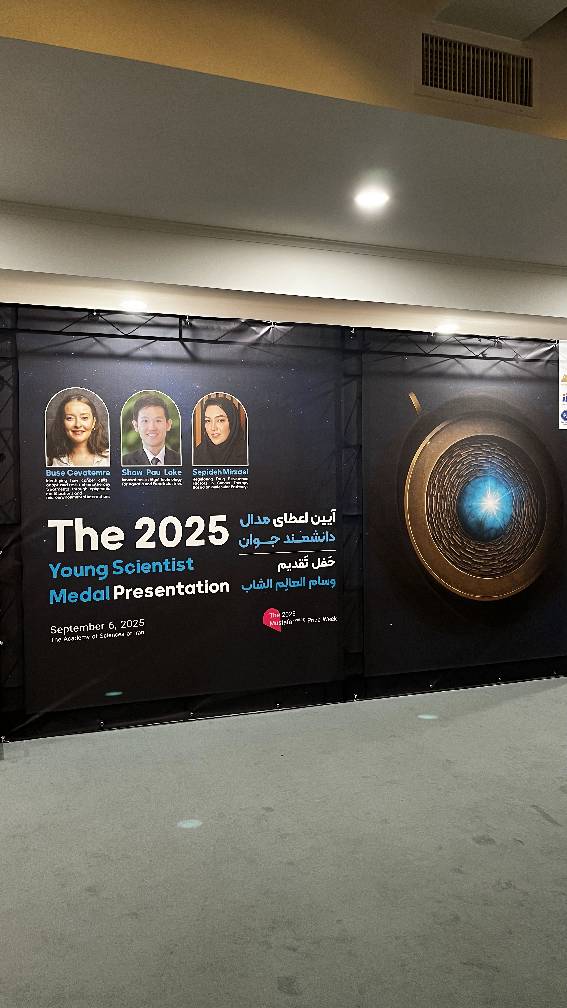Ali Akbar Salehi: Receipt of 1002 Applications for the Young Scientist Medal / Selection of 3 Scientists After Rigorous Multi-Stage Evaluation


The head of the scientific committee of the Mustafa (pbuh) Prize stated that the secretariat received 1002 applications for participation in the inaugural Young Scientist Medal. After several stages of screening and evaluation, three young scientists under the age of 40 were selected.
According to the Communications and Promotion Headquarters of the Mustafa (pbuh) Science and Technology Foundation, Ali Akbar Salehi said today (Saturday) at the Young Scientist Medal award ceremony held at the Academy of Sciences: “Coinciding with the 1500th anniversary of the birth of the Prophet Muhammad (pbuh), and building on the experience of five previous rounds of the Mustafa (pbuh) Prize, a new award titled the Young Scientist Medal was established in 2023. This initiative, aimed at honoring and encouraging the next generation of science and technology leaders in the Islamic world, was launched by the Mustafa (pbuh) Science and Technology Foundation with the support of endowments from two distinguished scientists—Professor Ugur Sahin and Professor Omid Farokhzad—laureates of the Mustafa (pbuh) Prize in 2019 and 2023.”
Salehi continued: “This medal is awarded biennially to elite young individuals under the age of 40 whose innovative and impactful work contributes to the betterment of human life. Recognizing young scientists and honoring their scientific and technological achievements is not merely a gesture of appreciation—it is an investment that heralds the rise of Islamic civilization.”
Evaluation Process of the First Young Scientist Medal
The former president of Sharif University of Technology elaborated on the evaluation process of this year’s Young Scientist Medal, stating: “The call for nominations was issued in February 2024, and nominating institutions within the scientific community had until September 2025 to submit their candidates to the secretariat. Simultaneously, the secretariat actively monitored and identified outstanding achievements by young scientists across the Islamic world, compiling an extensive list of nominees.”
He added: “Ultimately, 1002 scientific and technological dossiers were submitted to the secretariat across three main fields: 207 in information and communication science and technology, 81 in biological and medical science and technology, and 714 in basic sciences and engineering.”
According to Salehi, the dossiers were reviewed through several stages of screening, expert evaluation, and international peer review, based on precise criteria such as scientific innovation, pioneering impact, sustainability, and influence on the frontiers of knowledge, society, and industry.
He concluded: “Key selection criteria included publication in reputable scientific journals, potential for technological application, wealth creation, and contributions to health, environmental sustainability, and public welfare. After a meticulous and transparent process, three young scientists with outstanding and inspiring achievements were selected and will be honored today with the Young Scientist Medal.”